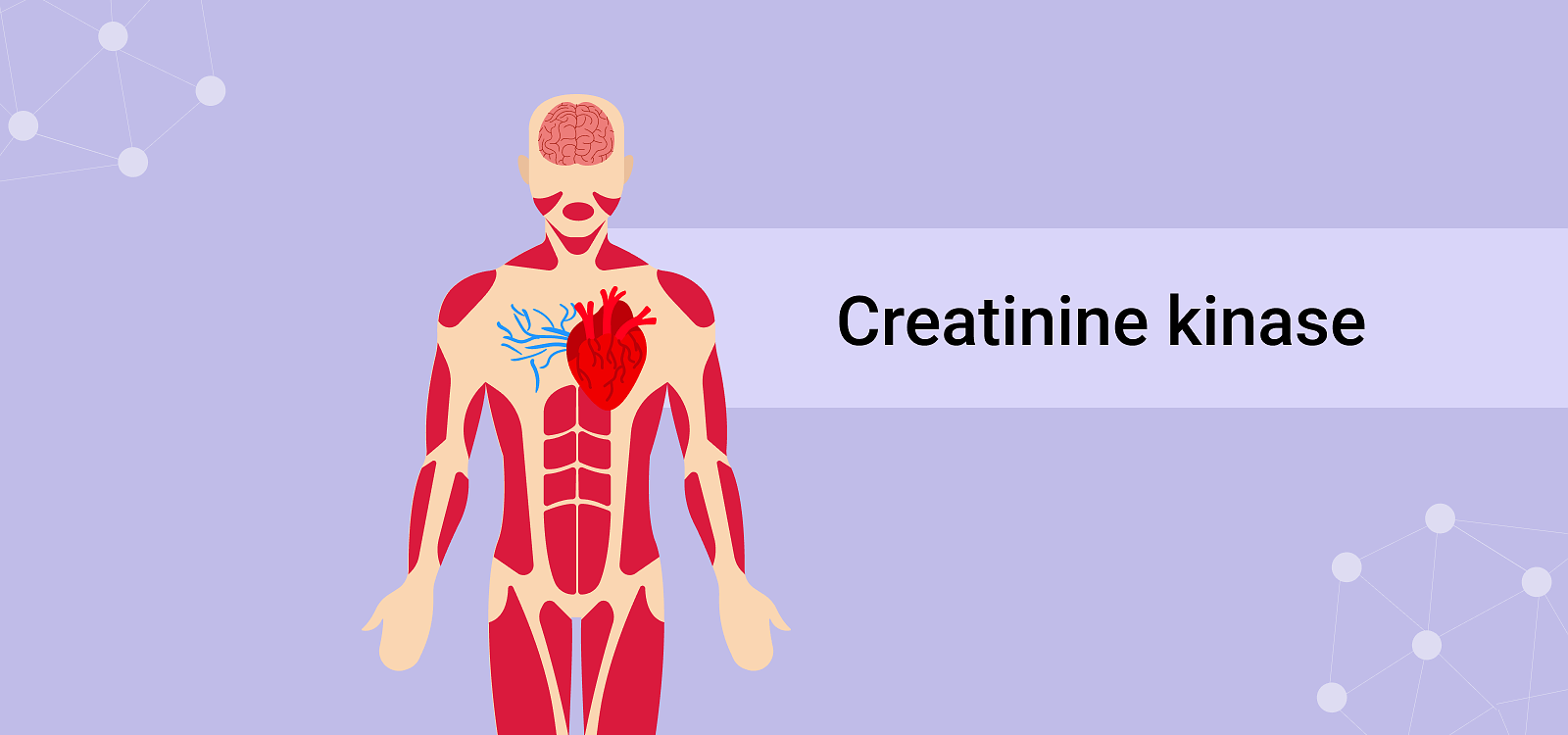Parameter Tuesday: CREATININE KINASE
Creatinine kinase (CK) is an enzyme that is widely spread in tissues with high activities in your skeletal muscles, heart muscle, and brain. Whenever there is an issue, damage or disorder present in any of those tissues, creatinine kinase is released into your blood. Depending on the type and the level of creatinine kinase found in your blood, it can help a doctor to determine the cause of the problem.
Elevated levels of a certain type of CK point to the damage in that specific tissue. There are three types of CK enzymes:
- CK-MM is present in skeletal muscles and is the type that is normally predominant in the blood,
- CK-MB is present in heart muscles,
- CK-BB is present in brain tissue.
In this way, elevated levels of the specific type of CK enzyme can point to muscle, heart, or brain damage or disease. Muscle damage can be caused by muscle injuries like torn or crushed muscles, burns, muscle inflammation, or even genetic diseases like Duchenne muscular dystrophy, which causes the breakdown of skeletal muscles and, eventually, the loss of function. Rhabdomyolysis is a rare but life-threatening muscular disease that causes your CK levels to rise due to rapid muscle breakdown. Muscle mass has an influence on normal CK levels in the blood. Therefore, there can be a difference in CK levels depending on gender, race, and physical activity. While elevated CK levels are connected to heart attacks, nowadays, physicians use other blood tests to confirm this diagnosis. CK levels may also rise due to disorders of the thyroid or adrenal glands, like hypothyroidism. When there is damage in the brain, like tumors, cerebrovascular accidents, central nervous system accidents, or childbirth, CK levels rise as well.
Low CK levels are less common but can be connected to alcoholism and alcoholic liver disease. People with rheumatoid arthritis or people who have been on bed rest for a long time will show abnormally low CK levels. As already mentioned, muscle mass has an influence on normal CK levels in the blood therefore women generally tend to have lower CK levels than men.






